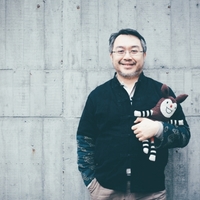- A English-Chinese translator with more than 50 published translations, I lecture widely in the fields of Taiwan liter... moreA English-Chinese translator with more than 50 published translations, I lecture widely in the fields of Taiwan literature and Anglo-American literature, with a special research interest in all topics related to translation, socio-translatology in particular.edit
過去八十年來,海明威經典小說A Farewell to Arms 的中譯本至少有數十個,但仍無人針對這本小說的翻譯史進行全面性的建構,因此本論文聚焦在1941... more
過去八十年來,海明威經典小說A Farewell to Arms 的中譯本至少有數十個,但仍無人針對這本小說的翻譯史進行全面性的建構,因此本論文聚焦在1941 年林疑今以降的全譯本,指出過去八十年來最具影響力的不脫林疑今、湯新楣與宋碧雲三個版本。翻譯名家林以亮(本名宋淇)曾於湯新楣的譯本出版時為文予以介紹,並指出林疑今的譯本在出版界「獨佔了三十年」,一方主張這期間許多譯本都是受到林疑今影響,另一方面則是認為林譯有「對美國俚語體會不夠」、「不懂美國棒球運動」、「不了解意大利是天主教國家」等諸多缺點,因此湯新楣的新譯足以取代林的舊譯。透過文本比對分析,本論文主張,除了林疑今最早的全譯本之外,後來出現的湯、宋兩個譯本都成為許多後來譯者在翻譯時的參考資料,因此也不幸承襲了前代譯者們所犯下的許多翻譯錯誤。從這點看來,林、湯、宋三個譯本在很長一段時間內影響很大,是翻譯史的寶貴資產,但對於後世的譯者來講,卻也是導致他們犯錯的負擔。
Research Interests:
本論文企圖透過近年來世界文學(Weltliteratur; World... more
本論文企圖透過近年來世界文學(Weltliteratur; World Literature)研究領域中的「入世」(worlding)理論典範來檢視過去二十四年以來《台灣文學英譯叢刊》的成就。《台灣文學英譯叢刊》與過去許多在美國出版的台灣文學譯叢迥然有異,刻意標舉台灣文學有別於中國文學的主體性。為了強化此一主體性,《台灣文學英譯叢刊》透過主編杜國清教授有意識的詮釋,特意從國際的視野重新看待台灣文學,讓它成為世界文學的組成部分。在「入世」典範的視角下,文學史與文學形象從既存事實蛻變為一個動態的「改寫」過程,而且「入世」特別強調各國文學之間的互動。此一叢刊的成就也印證了美國學者大衛•達姆洛許在《何謂世界文學?》(What Is World Literature?)一書裡面的觀察:只有在翻譯後獲得深化的文學作品才能成為世界文學。透過英譯、編選、卷頭語撰寫等方式,此一叢刊把台灣文學重新置入許多不同的文學脈絡中,讓台灣文學獲得深化,因此成為世界文學。最後,本論文特別對《台灣文學英譯叢刊》未來的發展方向提出一些建議。
Research Interests:
The present study begins with a brief translation history of Ernest Hemingway's A Farewell to Arms in France, Italy, and Spain, showing that, due to the novel's anti-war and anti-fascist nature, in many cases its translations were shaped... more
The present study begins with a brief translation history of Ernest Hemingway's A Farewell to Arms in France, Italy, and Spain, showing that, due to the novel's anti-war and anti-fascist nature, in many cases its translations were shaped not only by cultural and literary factors, but also by socio-political and economic factors. Following the introduction, based on Anthony Pym's "humanizing" (agent-based) approach to translation history, I explore the roles played by many Chinese publishers, translators, and editors in the novel's translation history in the first half of the twentieth century, with the intention to show why, compared to the translation boom of A Farewell to Arms since the second half of the twentieth century, translations of this novel were produced so infrequently from 1929 to 1949. Review of related historical facts indicates that at least two Chinese translations of A Farewell to Arms were published because Hemingway was identified by many Chinese intellectuals, including communists, as an anti-war and anti-fascist "leftist writer"; and even the allegedly pro-communist scholar-official John K. Fairbank was involved in a translation project of Hemingway's works. This study aims at showing that at least a part of the history of translating Hemingway in China has been determined by strategies and choices that the American translation theorist and historian Lawrence Venuti has identified as the "cultural politics of translation," in which the translation process is shaped by political agendas and ideologies, not just by translators' poetic judgment.
Research Interests:
Research Interests:
本論文從爬梳翻譯史料開始,探討鄭永康(Topas, 1987/1996)、Linda G. Wang(T’o-pa-ssu, 1987/1998)、陶忘機(Tamapima, 1987/2005)與許寶芳(Tamapima,... more
本論文從爬梳翻譯史料開始,探討鄭永康(Topas, 1987/1996)、Linda
G. Wang(T’o-pa-ssu, 1987/1998)、陶忘機(Tamapima, 1987/2005)與許寶芳(Tamapima, 1987/2015)的四個田雅各〈最後的獵人〉譯本之翻譯及出版背景,並透過不同版本譯文的比對分析,來探討譯者的翻譯策略是否能忠實反映作者拓拔斯‧塔瑪匹瑪身為一位原住民作家的政治訴求:以讀起來「不自然」的漢語來顛覆漢語霸權的既有框架。最後要強調的是,譯者若能採取異化翻譯的策略來重現原住民作家的作品,從韋努蒂(Venuti, 1998)所提「差異倫理學」的角度看來,這種策略一方面能夠保留原文的「異質性」,達成「疏離化」的美學效果,而另一方面則是可以觀照語言與政治之間複雜糾葛的問題。另一方面,陶忘機把所有「不標準國語」全都「抹平」(smoothed out)為標準的英文,雖然讓譯文失去了原文在文化、語言上的某些特色,卻也提高了譯文的流暢性與可讀性,但這是譯者為了符合「期待規範」(expectancy norms)的必然結果,
收穫則是讓臺灣原住民文學能更順利地在世界文學體系中流通,產生各種對話的可能性。
G. Wang(T’o-pa-ssu, 1987/1998)、陶忘機(Tamapima, 1987/2005)與許寶芳(Tamapima, 1987/2015)的四個田雅各〈最後的獵人〉譯本之翻譯及出版背景,並透過不同版本譯文的比對分析,來探討譯者的翻譯策略是否能忠實反映作者拓拔斯‧塔瑪匹瑪身為一位原住民作家的政治訴求:以讀起來「不自然」的漢語來顛覆漢語霸權的既有框架。最後要強調的是,譯者若能採取異化翻譯的策略來重現原住民作家的作品,從韋努蒂(Venuti, 1998)所提「差異倫理學」的角度看來,這種策略一方面能夠保留原文的「異質性」,達成「疏離化」的美學效果,而另一方面則是可以觀照語言與政治之間複雜糾葛的問題。另一方面,陶忘機把所有「不標準國語」全都「抹平」(smoothed out)為標準的英文,雖然讓譯文失去了原文在文化、語言上的某些特色,卻也提高了譯文的流暢性與可讀性,但這是譯者為了符合「期待規範」(expectancy norms)的必然結果,
收穫則是讓臺灣原住民文學能更順利地在世界文學體系中流通,產生各種對話的可能性。
Research Interests:
“The world is my home.” With these five words Oscar Wilde succinctly defined his fin-de-siècle cosmopolitanism. As an intriguing example of this cosmopolitanism, The Picture of Dorian Gray celebrates an aesthetic detached from locality... more
“The world is my home.” With these five words Oscar Wilde succinctly defined his fin-de-siècle cosmopolitanism. As an intriguing example of this cosmopolitanism, The Picture of Dorian Gray celebrates an aesthetic detached from locality and morality, and criticizes contemporaneous British Philistinism. By translating and rewriting Dorian Gray as Du Liankui (杜連魁), Taiwanese architect-novelist Wang Dahong transformed the Wildean fin-de-siècle aesthetic cosmopolitanism, replacing it with his own cosmopolitan and metropolitan visions. Wang’s manipulative modification of the novel’s tempo-spatial settings serves as a key to this transformation: Wilde’s focus on the London-Paris relationship in the source text is ingeniously rendered into Taipei’s relationships with other cities, including New York, Washington, San Francisco, and Paris. Wang’s rewriting can be seen as the product of a kind of global imagination emphasizing the superiority of cosmopolitan urban aesthetics, its main tenet being that Taiwanese provincialism should be replaced by an openness, a desire to learn from other cultures. Though Wilde’s aesthetic cosmopolitanism is lost in the process of Wang’s rewriting, the translation gives us what the original novel could not have possibly provided—an urban cosmopolitanism which predicts the problems of today’s Taipei.
Research Interests:
This study focuses on a re-reading of Bai Xianyong's Crystal Boys from the perspectives of urban semiotics and the structural analysis of the urban spaces of Taipei as represented in the novel.
